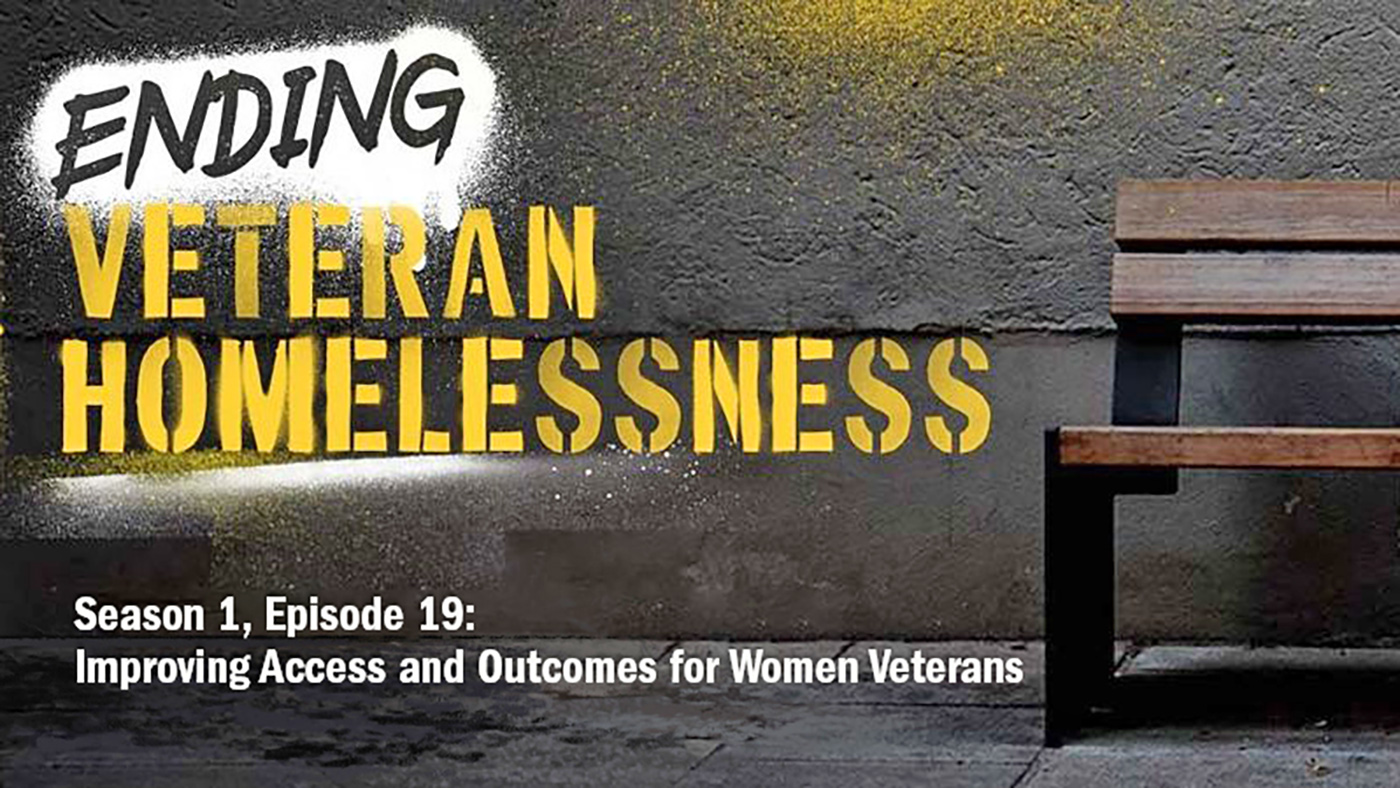Lourdes Tiglao is drawn to work that helps humanity. As the director of VA’s Center for Women Veterans, she understands how important it is for VA to provide assistance and support for women Veterans. But she also has the lived experience of being a woman Veteran who deployed to Afghanistan.
On November 2023’s Ending Veteran Homelessness podcast, we were joined by Tiglao and Tracy Emmanuel, the deputy director for the Housing and Urban Development-VA Supportive Housing Program to better understand homelessness among women Veterans. They spoke about the unique barriers that homeless women Veterans face when accessing services and what VA is doing about it.
Statistics show there is room for improvement
VA has made a lot of progress when it comes to assisting female Veterans, but in order to create truly equal access to programs and resources, there’s still work to be done.
Based on Department of Housing and Urban Development (HUD) data from 2018 to 2022, overall homelessness among Veterans declined by about 12%. However, during that same time period, homelessness among women Veterans actually increased by 7% from 3,219 Veterans in 2018 to 3,440 Veterans in 2022. This increase was mostly among women who experienced unsheltered homelessness.
But there is reason to hope. By acknowledging barriers to care, we can help ensure equal access to services.
Looking at barriers to care for women Veterans
There are many barriers for women who are working to attain equal care, including missing a sense of identity because they didn’t retire, deploy or have a specific occupational specialty. Women often don’t feel like they can be called a Veteran, Tiglao said.
There is also the feeling of being dismissed by their health care provider, a problem that isn’t unique to VA. Finally, there are myths around obtaining services, such as the fact that many women Veterans feel like they can’t ask for housing support because their children will be taken away.
Tiglao noted that it’s crucial for all women who have served to feel validated as a Veteran and to combat these myths that continue to circulate.
What VA is doing to improve the situation
One of the ways we can overcome barriers to care is by making VA more welcoming for women Veterans. “Women Veterans need to see themselves reflected in the spaces and places they seek help,” said Tiglao. “They don’t come to VA because everything’s all great and well. They’re coming because they need something.”
Another way VA can help is to provide services to Veterans who would prefer a home visit. “We might have women Veterans who don’t want to come to a VA location for their care,” said Emmanuel. “Our program does home visits, whether you’re a female Veteran or not. We can come into the home. We can help Veterans come up with their treatment plan.”
Learn about VA programs
If you are a Veteran who is homeless or at risk for homelessness, call the National Call Center for Homeless Veterans at 877-4AID-VET (877-424-3838).
Visit VA’s Center for Women Veterans website to learn more about how the Center coordinates VA health care, benefits, services and programs for women Veterans.
Visit the VA Homeless Programs website to learn about housing initiatives and other programs for Veterans exiting homelessness.
Check out the Ending Veteran Homelessness podcast to learn more about what VA is doing about Veteran homelessness.
Learn how to get involved with housing homeless Veterans.
For more stories like these, subscribe to the Homeless Programs Office newsletter to receive monthly updates about programs and supportive services for Veterans experiencing or at risk of homelessness.
Topics in this story
Link Disclaimer
This page includes links to other websites outside our control and jurisdiction. VA is not responsible for the privacy practices or the content of non-VA Web sites. We encourage you to review the privacy policy or terms and conditions of those sites to fully understand what information is collected and how it is used.
More Stories
Bob Jesse Award celebrates the achievements of a VA employee and a team or department that exemplifies innovative practices within VA.
The Medical Foster Home program offers Veterans an alternative to nursing homes.
Watch the Under Secretary for Health and a panel of experts discuss VA Health Connect tele-emergency care.






